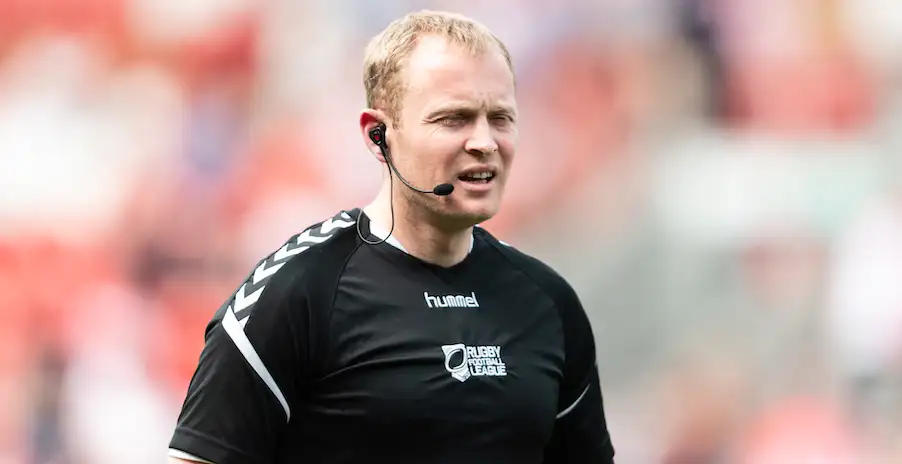A big problem for rugby league’s overseas expansion plans – referees

Photo courtesy of Richard Long
In a week where Ottawa and New York have formally announced their brands and their entry to League One has been confirmed – there’s perhaps one question that’s been overlooked.
How can the RFL’s match officials department keep up with demand?
That was a question posed by former Super League referee Ian Smith, a recent guest on our Last Tackle podcast, and a passionate, knowledgable figure when it comes to the game.
Has anyone thought about how we produce enough match officials to cover matches in NY, Toronto, Toulouse, Catalan, Ottawa with only 7 active FT referees at the moment. Each game is a minimum of a three day round trip, they need 4 MO's for each game with TJ's and RR on pittance
— Ian Smith (@Iansmith2468) March 11, 2020
If games are to be played in even just a couple of New York, Toronto, Toulouse, Perpignan and Ottawa over a given weekend, there is no way that match officials could double up.
That’s different to the current schedule – where a referee could feasibly be in the middle for a match on a Thursday, be the video referee at a different game on a Friday, and then run the line on a Sunday.
The match officials department is already struggling for numbers, and there is an ever increasing list of high-profile referee departures in recent years, including Phil Bentham, Joe Cobb, Richard Silverwood, Tim Roby and even Smith himself, who reluctantly hung up the whistle some 10 years ago.
They will ask MO to double and treble up over the weekend for games played in England then when refs are burnt out because they are officiating over 100 matches per year then we will lose even more MO. Even now we are asking a TJ to TJ on Thurs night the Ref a SL game on Fri.
— Ian Smith (@Iansmith2468) March 11, 2020
With a concern that the level of abuse aimed towards referees – not helped by comments made by club chairmen and coaches in recent times – is already diminishing the numbers of match officials, to then have to find even more numbers and fast looks like a big challenge.
Games require a minimum of four officials, including the referee, a reserve and two touchjudges – while increasing that number to include in-goal officials and a possible video referee and even match commissioners and timekeepers puts yet more pressure on the numbers.
Overseas matches also put even more pressure on the pound – it’s not just about expenses for getting to a ground and officiating, you then have the fact you’re there for multiple days, meals and accommodation in that time, and the expense of overseas travel.
I'm sure they have but the reality is we don't have enough MO's and they are still leaving on a regular basis as its just not worth the aggro and as a reserve ref on those foreign trips you will end up after tax on about £9 per day…Works out at 37p per hour..
— Ian Smith (@Iansmith2468) March 11, 2020
The RFL say that the additional costs of match officials are built in to the applications of overseas teams.
An RFL spokesperson said: “It’s a good point, and one which we always bear in mind, and will continue to do so – one of the many implications of inviting clubs from overseas into our domestic competitions.
“The development of match officials should be part of the planning for any new clubs, as although the new overseas clubs commit to covering the costs of the RFL supplying match officials, it also places considerable additional demands on our officials, the majority of whom are part-time.
“For example we have done training with all officials who are likely to travel overseas – full and part-time – delivered by Professor Dave Collins, former British Athletics Performance Director with extensive experience of high-performing athletes in how to handle international travel with short turnaround times.”